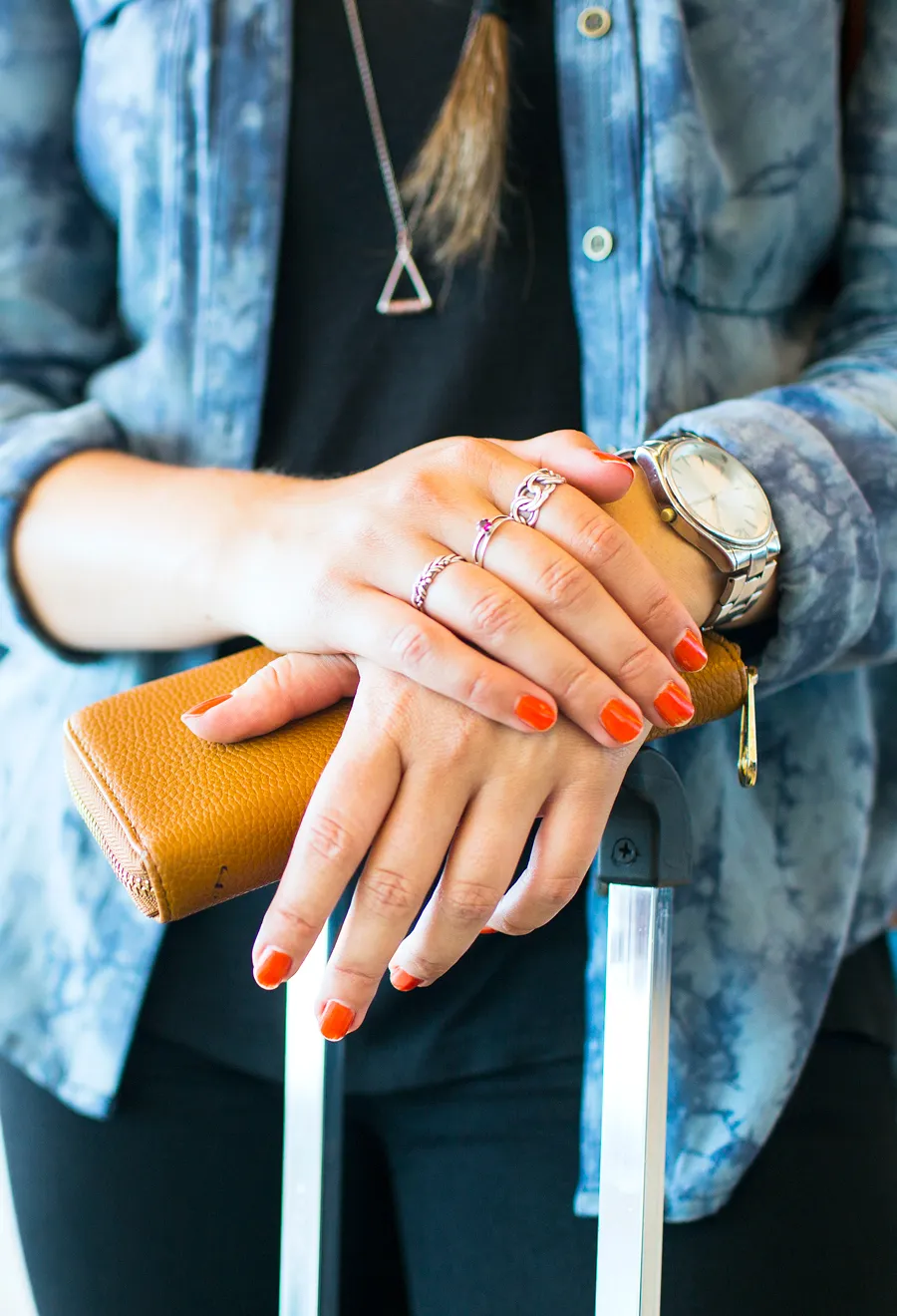From what you wear to how you behave or even how you purchase your ticket, certain actions can catch the TSA’s attention and lead to extra security screening. While in many cases, passengers are randomly selected for secondary screening, some common behaviors can hold you up at security longer than necessary, adding stress and delays to your travel day. Make your next trip go as smoothly as possible by understanding what might get you flagged by the TSA.
Traveling on a One-Way Ticket
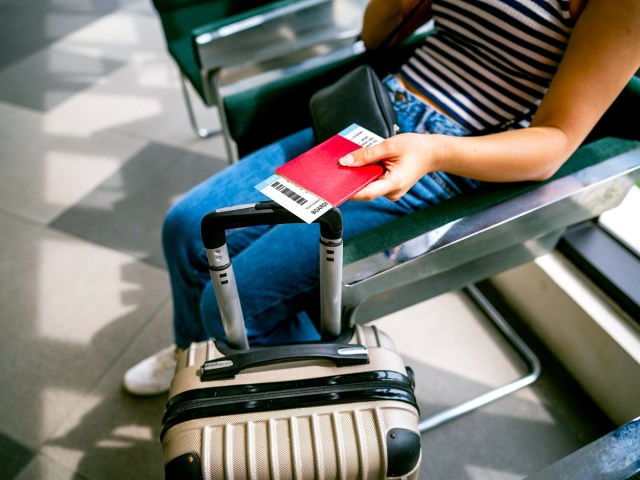
There are plenty of legitimate reasons to buy a one-way ticket, but sometimes, TSA officers may interpret a one-way ticket as a potential red flag, particularly if you are flying internationally. When combined with other factors (more on those below), a one-way ticket can result in a Secondary Security Screening Selection (SSSS) stamp on your boarding pass.
While many passengers don’t get flagged, the reason some do is based on past instances in which individuals with one-way tickets were later found to have hijacked a plane, had the intention to join a terrorist organization overseas, or were fleeing the country. If you’re flagged by TSA for additional screening while traveling on a one-way ticket, remember that the agents are simply doing their due diligence to help keep air travel as safe as possible.
Wearing the Wrong Clothing
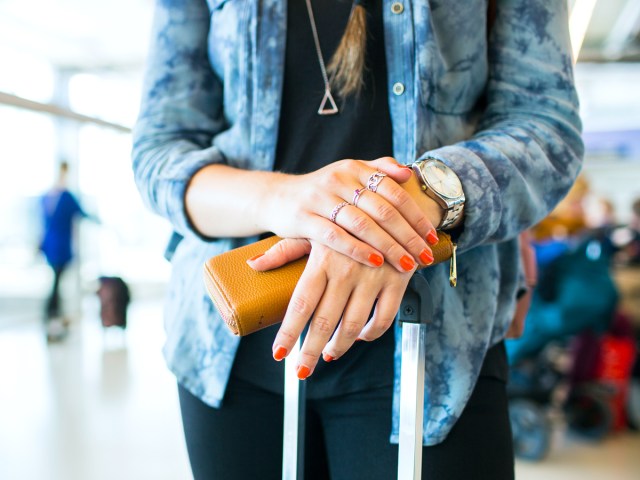
When it comes to what triggers a search at TSA checkpoints, what you’re wearing can play an important role. Clothing that is too tight or too bulky may prompt additional screening and lead to a more thorough inspection. Tight clothing can create bulges in certain areas that appear as hidden objects on the scanner, while clothing that is too loose may give the impression that you are trying to conceal something. Any item with enough metal in it can also trigger the alarm.
While most of us know to remove watches and jewelry before passing through the metal detector, there are less obvious items that can cause issues. For example, women’s underwire bras have been known to set off the detector, as have boots with prominent buckles. With so many clothing items capable of ringing the alarm, the best approach is to dress comfortably, calmly obey instructions, and be aware of your rights if you are selected for a pat-down. You have the right to request a private room, have a witness of your choice present, and ensure that an officer of the same sex conducts the search.
Excess Reflex Behavior

TSA officers are trained through the SPOT (Screening of Passengers by Observation Techniques) program, which uses a list of behaviors that could indicate high levels of stress, fear, or deception. On that list are common human behaviors such as yawning, rapid blinking, gulping, skin flushing, coughing, throat clearing, and leg shaking, all of which are considered stress indicators that can draw TSA scrutiny.
Air travel is stressful, and displaying these reflexive behaviors doesn’t mean you’re guilty of anything, but it may attract extra attention from officers. Interestingly, a yawn isn’t just a sign of fatigue — researchers have found that nervous people yawn more as a “displacement activity,” a way to calm their body in a heightened or stressful state. While anxiety and stress can naturally trigger these reflexes, staying calm can help make the process smoother. One practical strategy is to give yourself plenty of time to get through TSA so you avoid rushing, which is a sure way to stress yourself out and potentially prolong your experience.
Talking Too Much
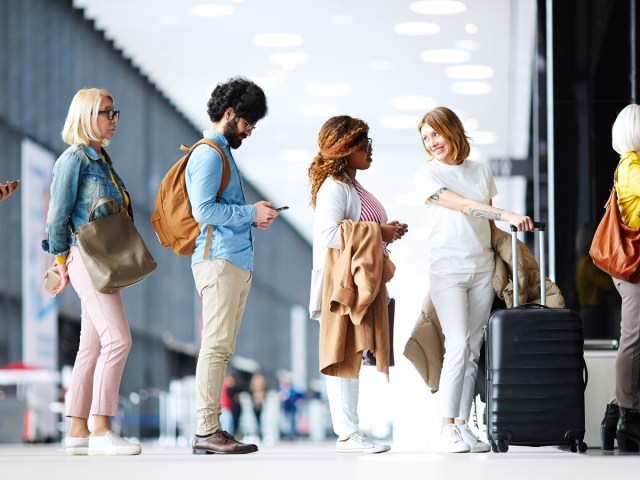
Most travelers passing through TSA just want to get through quickly and on to their gate. With long wait times, passengers are anxious about making their flights, but TSA officers are extremely busy — they see an estimated 2 million to 3 million passengers every day. They’re focused on their duties, whether that’s monitoring the X-ray machine, manning the metal detector, or keeping the line moving smoothly, and they generally aren’t looking to make small talk.
Excessive chatting can raise red flags, making it seem like you might have ulterior motives or are trying to distract them from their work. While a joke can sometimes break the tension in a crowded security line, it’s a good strategy to keep your humor to yourself, especially anything off-color. And of course, comments about weapons, bombs, or terrorist activity will almost certainly land you in hot water, leading to extra screening and questioning.
Purchasing a Ticket in Cash
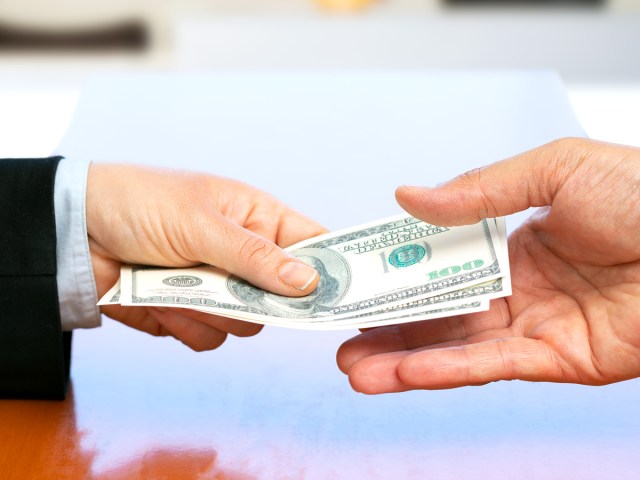
“Cash is king” is a saying that still holds some truth today, but it’s losing its relevance as the world shifts toward credit cards and digital payments. For large purchases such as a flight ticket, paying with cash can even raise suspicions that wouldn’t have existed a decade ago.
The reason? Credit card transactions can be easily tracked, allowing authorities to verify a purchaser’s identity if needed. Cash payments, on the other hand, leave little paper trail, making both the money and the buyer more difficult to trace. Combine a cash purchase with other factors — such as a one-way ticket or a last-minute purchase — and you may raise even more suspicion.
More from our network
Daily Passport is part of Inbox Studio, an email-first media company. *Indicates a third-party property.






